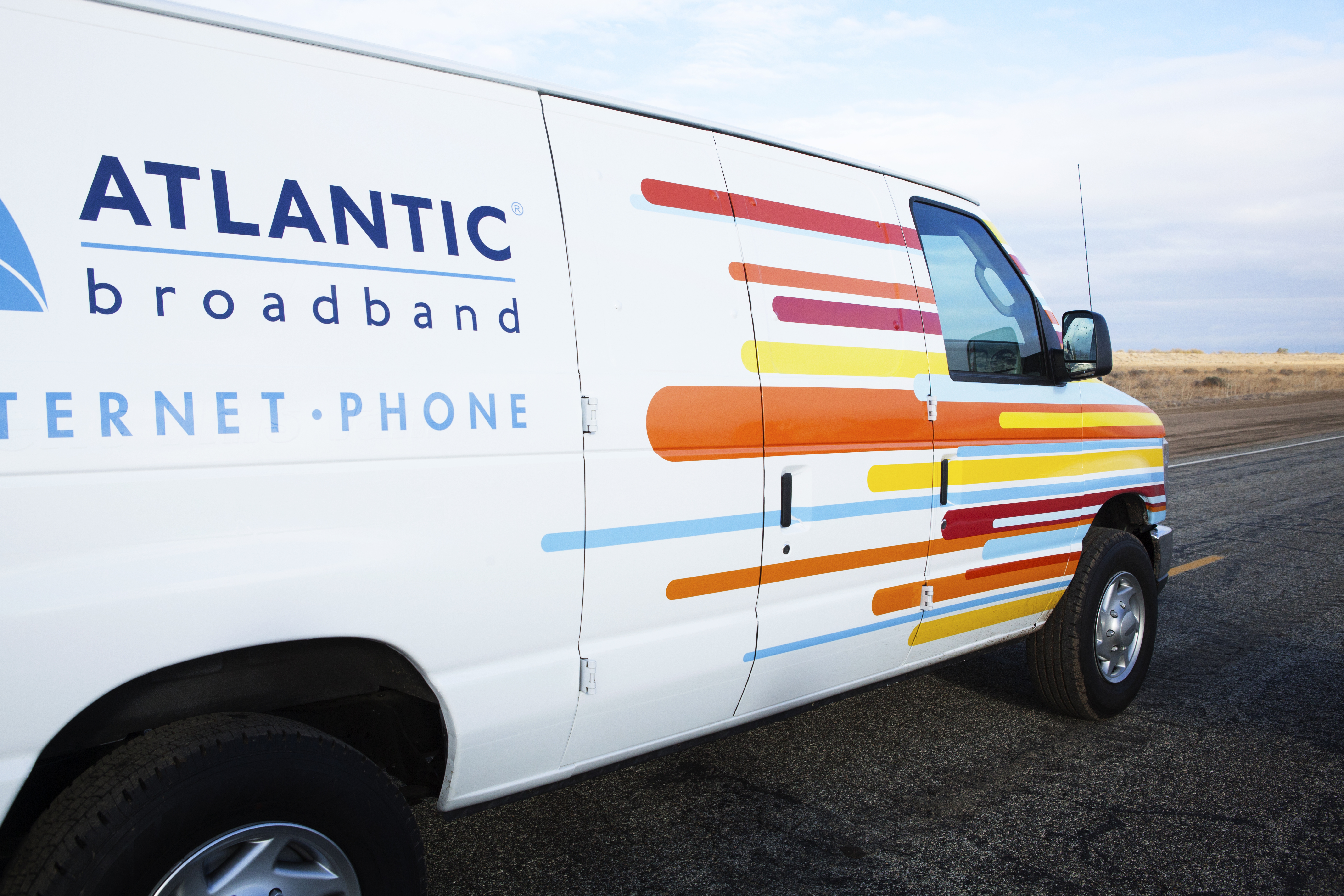A Small Op That Pulled Off A Big Task
The smarter way to stay on top of the multichannel video marketplace. Sign up below.
You are now subscribed
Your newsletter sign-up was successful
In this era of consolidation, Atlantic Broadband did something that is becoming increasingly difficult in the age of acquiring scale: It pulled off a major integration without a hitch.

Granted, Atlantic Broadband, one of two providers honored as Multichannel News 2018 Independent Operators of the Year, is a lot smaller than some of the other companies that have tried with some difficulty to assimilate recently purchased operators. But the accomplishment was still noteworthy.
Related | Vyve Broadband: Fulfilling a Small-Town Vision of Broadband
Atlantic purchased MetroCast Communications in January, a $1.4 billion deal that brought about 76,000 new video customers and 400 more employees to the cable operator. It was the first major deal the operator has made since it was purchased by Canadian cable operator Cogeco Communications.
It helped that the two companies had the same billing vendor, CSG Systems, which helped out with switching over billing and provisioning functions, according to Atlantic Broadband CEO Richard Shea.
“We prepared all fall,” Shea said. “We went from Jan. 4 to Jan. 5 without incident.”
Ensured a Smooth Transition
The smarter way to stay on top of the multichannel video marketplace. Sign up below.
Atlantic transitioned the rest of the business in stages: new service bundles were available to former MetroCast customers within 30 days. Though the business began operating as Atlantic Broadband immediately after the deal closed, the company took a little more time with other aspects.
“We began offering new services, offered bundled products within the first 30 days,” Atlantic vice president of customer care Courtney Long said. “There were many synergies between the companies, whether that was like systems, from billing systems to provisioning systems. That really allowed us to expand quickly from a coverage standpoint. Most of the integration activity was completed within the first 30 days post-close.”
CSG Systems vice president of strategic business Darla Thompson, who worked with both Atlantic and MetroCast on the billing systems transition, said the long relationship the companies have had played a big role in smoothing out any switchover kinks.
“Anytime you combine companies and combine billing systems, the main goal is to make the transition as easy as possible for the service provider and for the end subscribers,” Thompson said. “For ABB’s acquisition of MetroCast, CSG used a proven process to streamline billing systems and in this case, we had two separate instances of our highly configurable billing solutions to combine. Configurability means that we can combine both billing systems into a single solution that creates a standard customer experience for all subscribers, faster, which makes the overall acquisition process easier for everyone.”
MetroCast has been a strong operator in and around New England for years. In addition to the 76,000 video additions, the deal brought about 120,000 high-speed internet and 37,000 telephone subscribers to the Atlantic Broadband fold at the time the transaction was announced. The MetroCast systems passed about 236,000 homes in New Hampshire, Maine, Pennsylvania, Maryland and Virginia.

“From a rebranding standpoint, we gave ourselves a little more time,” Long added. “We stretched out to May 1 to make sure we were properly outfitted, from trucks to uniforms and signage. The reality is, we operated as Atlantic Broadband on day one. We were able to integrate our call centers and from a customer experience standpoint, nothing got lost in the shuffle of that transition. We got to work very early on so we were ready to roll on Jan. 1.”
MetroCast and Atlantic have had a relationship for about three years — Atlantic purchased its much-smaller Connecticut operation in 2015 — so both companies were familiar with each other and their respective operations. The January deal increased Atlantic’s customer base by about 40% and added 400 workers to its employee rolls.
In the past six years, Cogeco, which has about 780,000 cable subscribers in Canada, had seen Atlantic as a vehicle to extend its U.S. presence.
While Atlantic will continue to look at opportunities as they come, Shea said, it will concentrate on its internal operations for the time being. As larger operators and content producers search for ways to increase their scale, Shea said Atlantic has a different philosophy.
“We like our position,” Shea said. “We’re scrappy, we’re the ninth-largest [U.S. cable operator], we operate well, we serve customers, and we offer the right products in our markets and we’re in the right markets with the network. But there are some megatrends out there that we’re all watching. We’re open to evolve; we’re well-managed to adjust to whatever comes.”
Deploying a Gateway to Bolster Video
To a smaller extent, Atlantic is already growing video and data subscribers the old fashioned way: through superior products and service. Atlantic added 270 video service subscribers in the fiscal second quarter ended Feb. 28, compared with a loss of 1,805 subscribers in the prior year. For the six-month period, video losses were nearly halved to 2,695 customers compared with 4,610 customers in the previous year. Shea gives most of the credit for the video customer improvements to the launch of its TiVo gateway service.
“We’re still experiencing the favor of what we did in Connecticut a year and a half ago,” Shea said. “TiVo was a big win and was actually our fastest deployment. Customers were looking for the next level of a video experience in a home gateway, and it had our fastest take rates ever. That gave us the confidence in why we think the rest of MetroCast will be equally well-received.”
Atlantic Broadband has been a TiVo affiliate since 2013 in its legacy systems. Atlantic vice president of programming Heather McCallion said the operator plans to roll out the gateway product to the rest of the former MetroCast systems soon, with completions expected by the late fall.
“As we move toward the gateway experience in the household, it is even more important,” McCallion said. “TiVo is the only platform that has the deepest search across all metadata of content that is coming in through apps and linear channels and on demand. We were one of the first to launch with Netflix, and we see major usage of Netflix among our subscribers. We continue to launch other apps as they become more relevant and requested. We want to make sure whatever content our customers are looking for is readily available and a few clicks away.”
TiVo has had a relationship with Atlantic Broadband since 2013; the operator was one of the first to partner with the DVR pioneer, TiVo vice president of sales for North America Jeff Glahn said. Atlantic’s success with the product has largely been due to its management commitment, he added.
“It was clear that they made it a priority to launch video,” Glahn said. “They talked about their commitment to growing the business, whether it was residential, and even going into new markets like MDUs. From the beginning Atlantic Broadband always looked and talked to their customers and would take that feedback to us.”
While distributors grapple with the need and desire for more scale, programmers appear to be the ones taking the most action at present. The Walt Disney Co. is in the middle of what could be a lengthy battle with Comcast over certain 21st Century Fox programming assets. Other programmers, fearful of losing clout with both over-the-top and traditional distributors, are expected to continue to contemplate adding more heft.
For smaller operators, that poses a particular dilemma, because they have been paying among the highest prices for programming for years. More powerful content creators can only mean one thing for small-to-midsized operators: higher programming prices.
“Scale is really important on the programming front,” McCallion said. “It’s not about subscriber count. It’s about where you operate, how much influence you have over advertising dollars in addition to subscriber fees. We are small in that respect.
“We buy a lot of our content through the NCTC, and some of it we buy on our own,” she added. “So anytime when these consolidations happen, especially when they happen without any guardrails or with few guardrails, it’s concerning. But we hold our own and we make the tough choices every single day. We have strategically removed content in the millions of dollars’ worth of value, with very little impact. This is not leveling off anytime soon, and it’s concerning.”
Those content assets that were removed were mostly regional sports networks that weren’t widely viewed, McCallion said.
Operators must learn to adapt to the changing landscape and how customers are getting video, Shea said. “You’re seeing a customization of video,” Shea said. “We’re much more concerned about, are we getting the right customers the right content? So, the mass delivery stuff, which costs a lot of money, is something we can’t do. We’re kind of edging very, very gradually to get customers what they want, and it’s not going to be 300 channels.”
That strategy fits in with the overall push to focus on broadband services throughout the industry. But it has been small and midsized cable companies that have led the charge toward broadband-centric operations.
For the two largest U.S. cable operators — Comcast and Charter Communications — broadband customers have outnumbered video subscribers since 2015 and 2013, respectively. Smaller operators like Atlantic, co-Independent Operator of the Year Vyve Broadband and others are seeing new life in the high-speed data business.
Small operators aren’t abandoning video service, though. They’re just finding a better way to deliver it.
Serving the Right Products
Through services like TiVo and others, companies like Atlantic are marrying subscription video-on-demand platforms like Netflix and Hulu with traditional pay TV offerings and lightning-fast broadband. It is a mix that, at least for the time being, appears to be working.
“We are still in the video business,” McCallion said. “There is content that people can only get through us in the full living-room experience. We continue to wholesale that and offer that through our lineup. We make tough choices every day from a content perspective.
“Our willingness to pay the same premiums has gone down,” she continued. “Quite frankly, the content is readily available, and if we can get a gateway experience with somebody in the home and still keep that customer happy consuming our broadband service and our video service to some extent, that’s a happy customer and that works for us.”
Atlantic has also undergone a major push to bring 1-Gigabit per second speeds throughout its footprint. It plans to have about 50% of its footprint covered this year, with the rest of its markets offering the service in 2019.
The 1-Gbps service is the leading product, but Long said Atlantic has also introduced faster speed profiles in between and let customers try out a 1-Gbps service to determine if it is right for them.
“It’s really hard to translate in a marketing piece the difference between 250 [Megabits per second] and 1G,” Long said. “We are working through our product and marketing efforts to make sure that our customers fully understand what’s available and that they’re trying it out and using it.”
Demand for higher and higher speeds is strong, even in rural America, Shea added.
“It is a No. 1 need,” Shea said of fast, reliable broadband service. “We operate in Tier-2 markets from Maine to Florida, and our customers have no different needs for broadband than anybody else; sometimes, in fact, even more. Our outlook is that people want three things out of life: They want power, they want water and they want broadband. It’s our job, starting with WiFi and the right products, to get there.”
